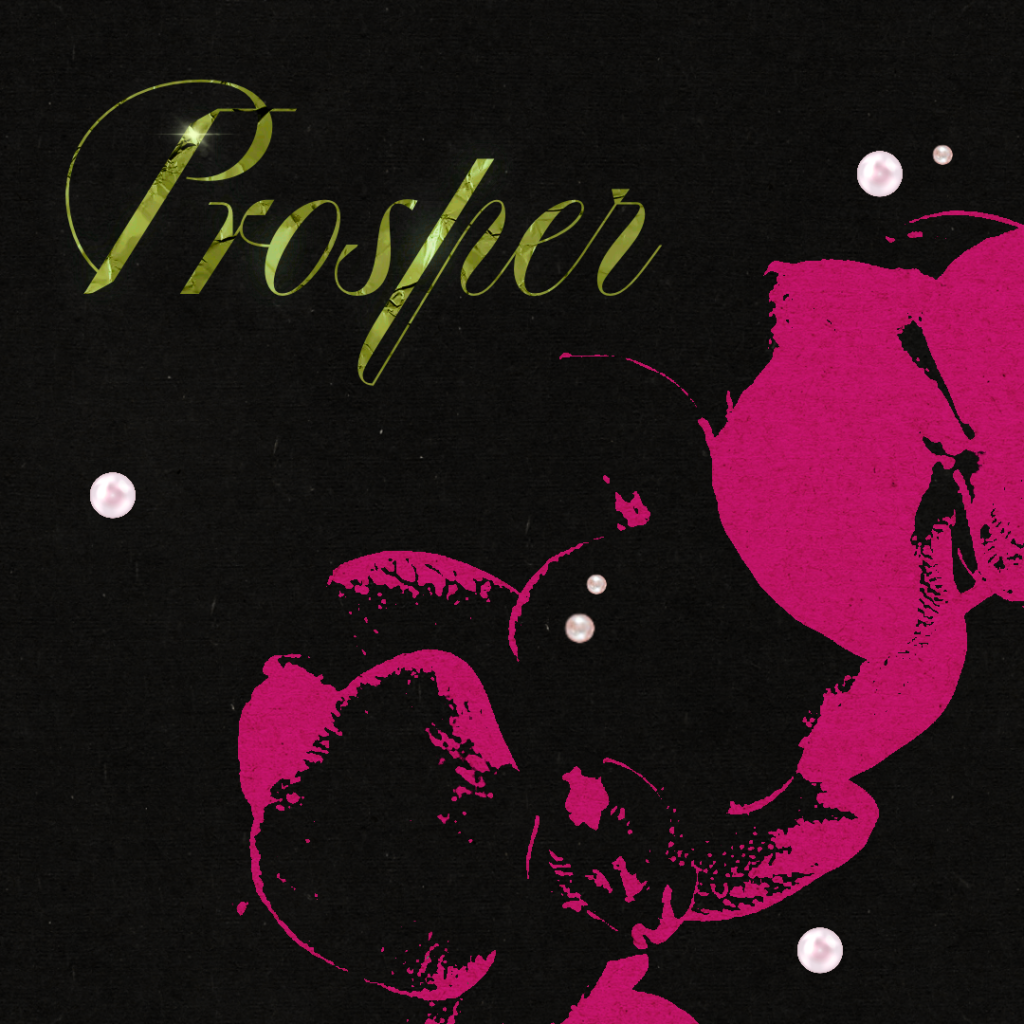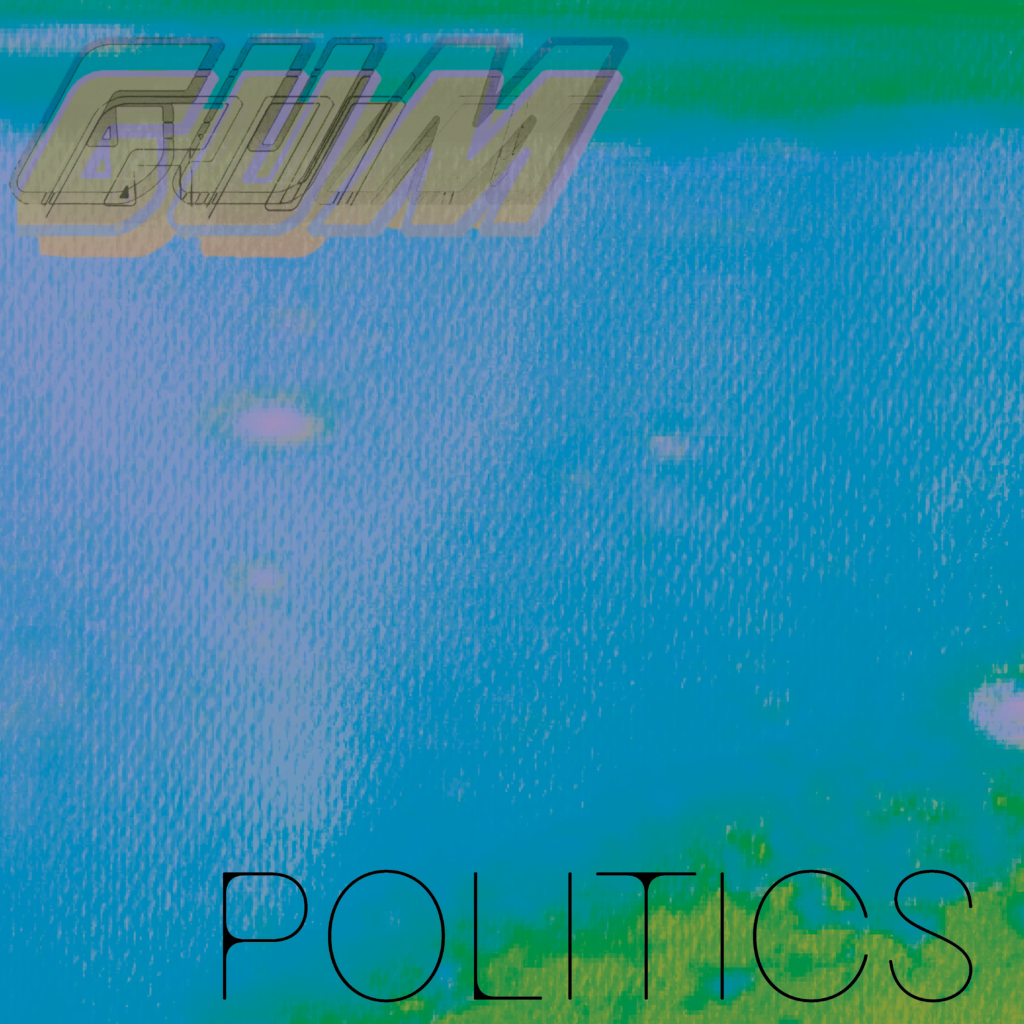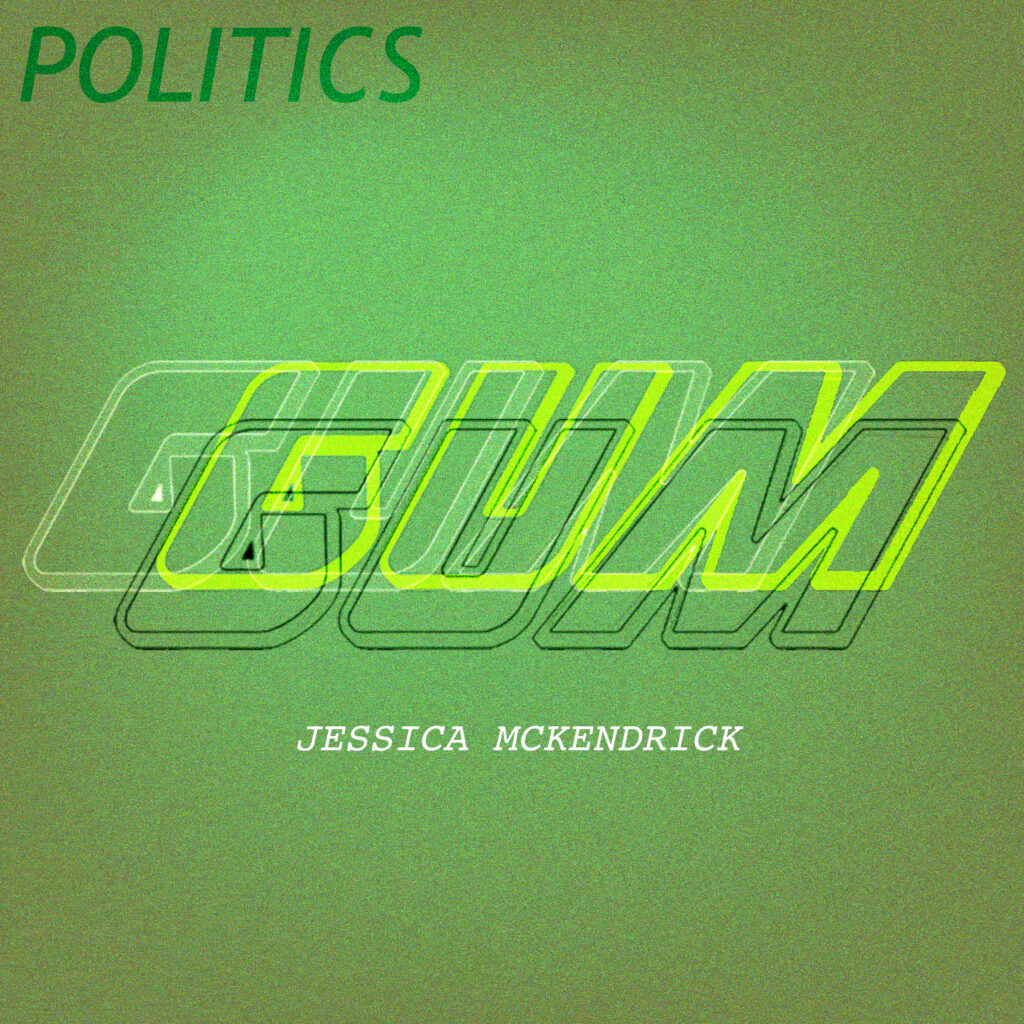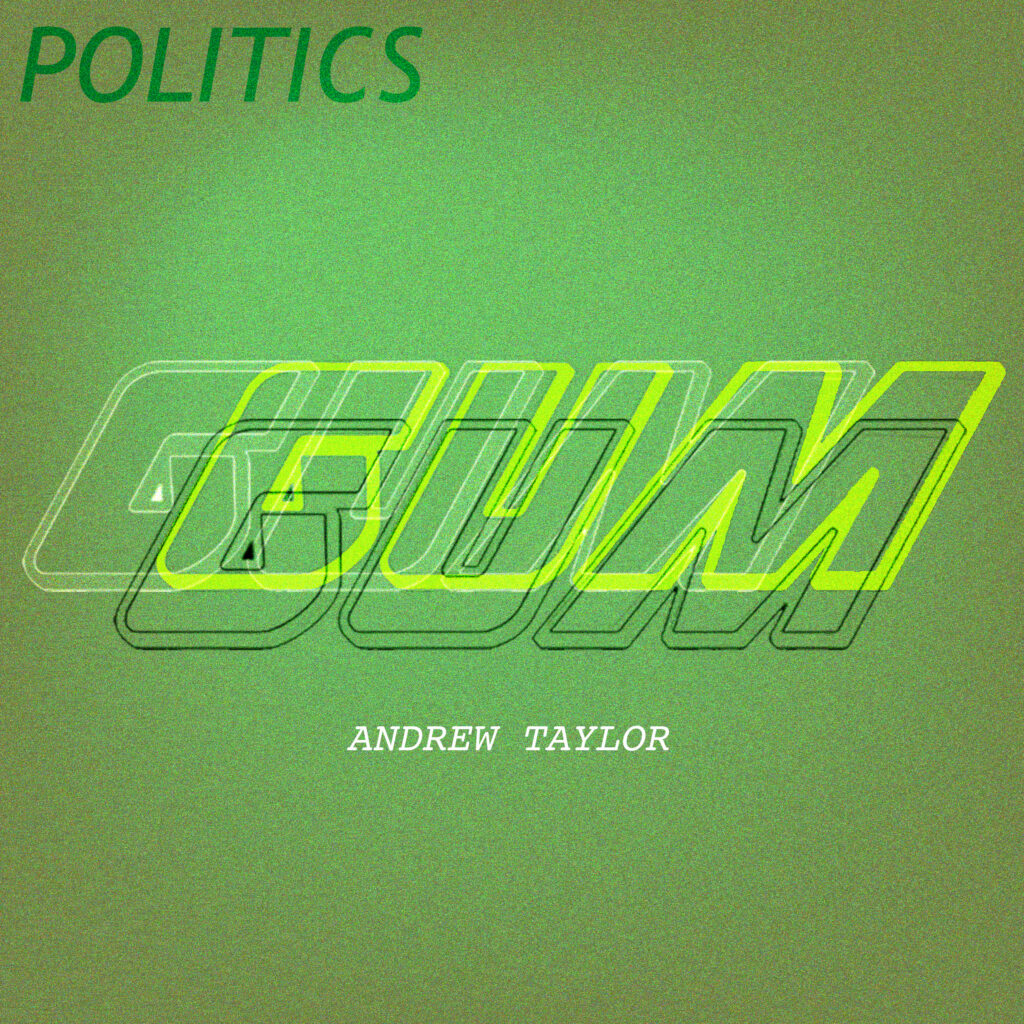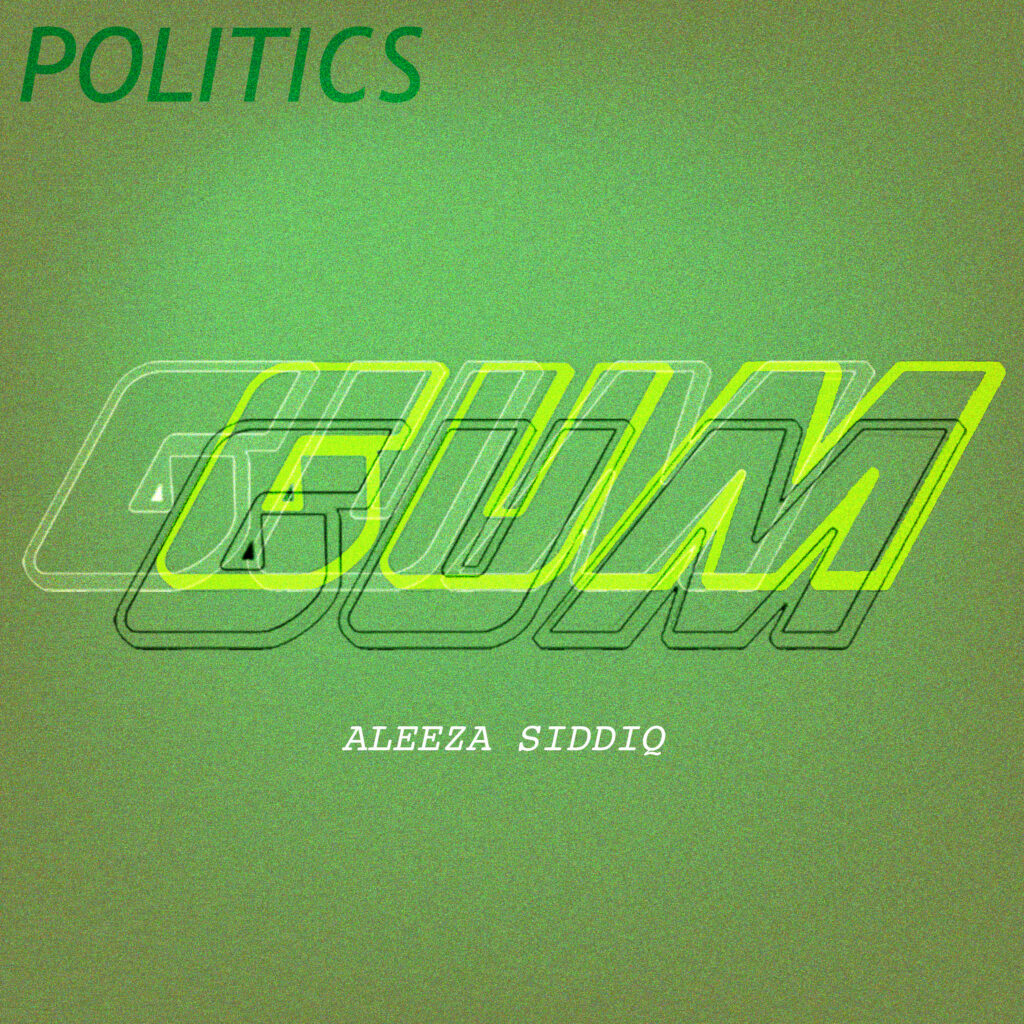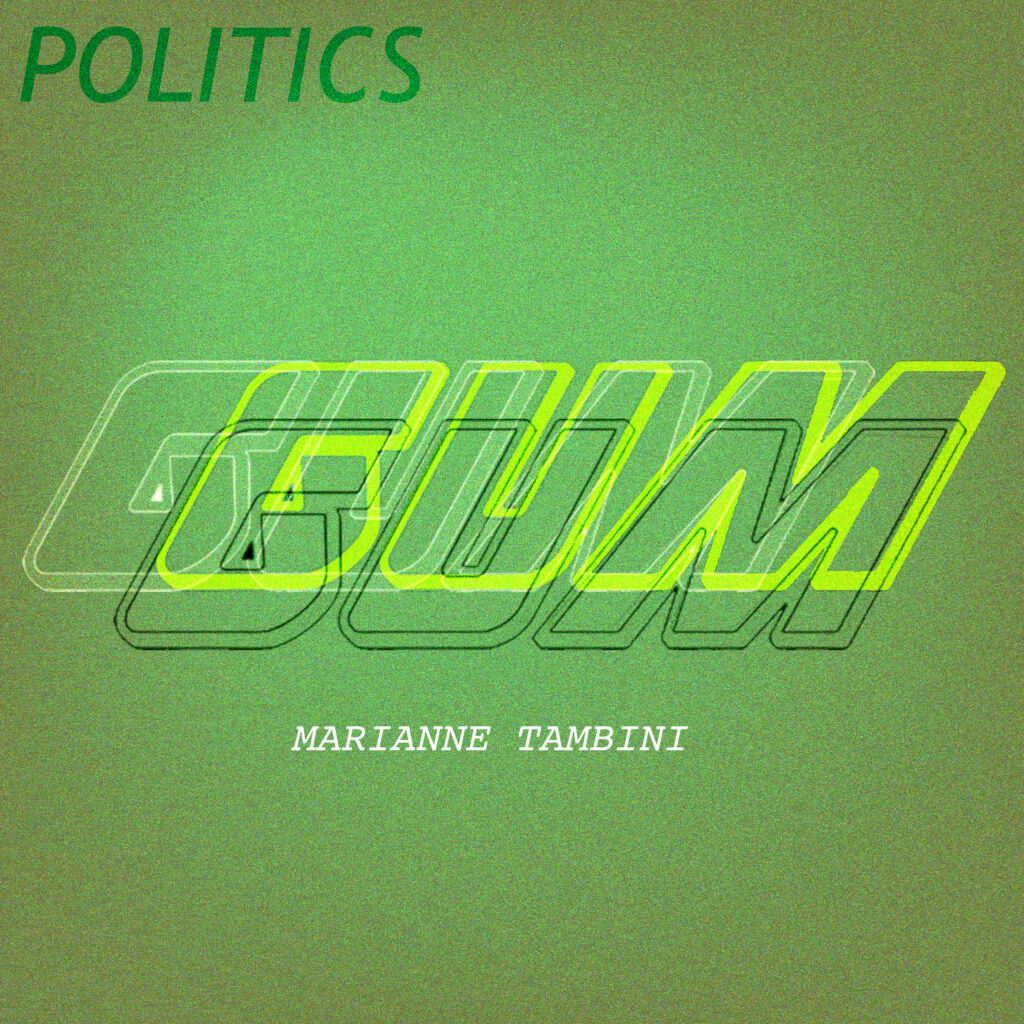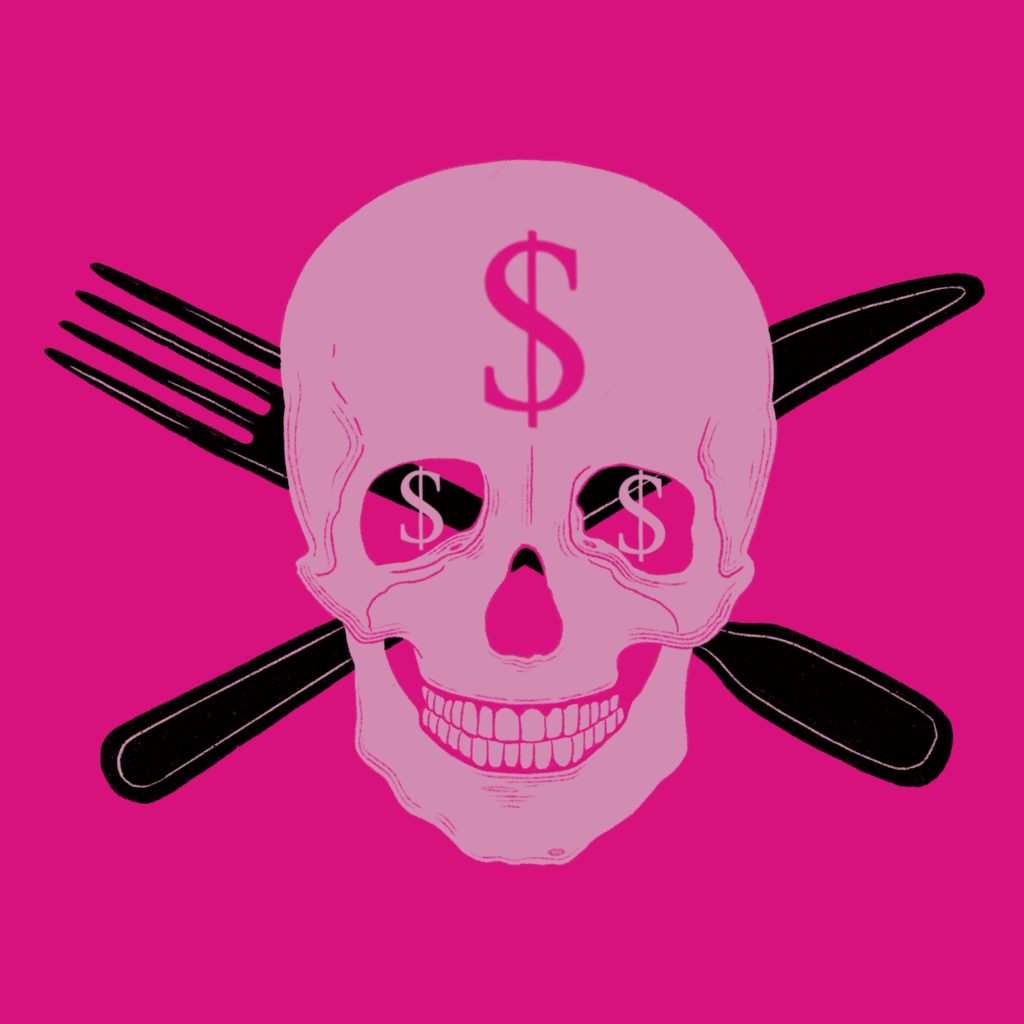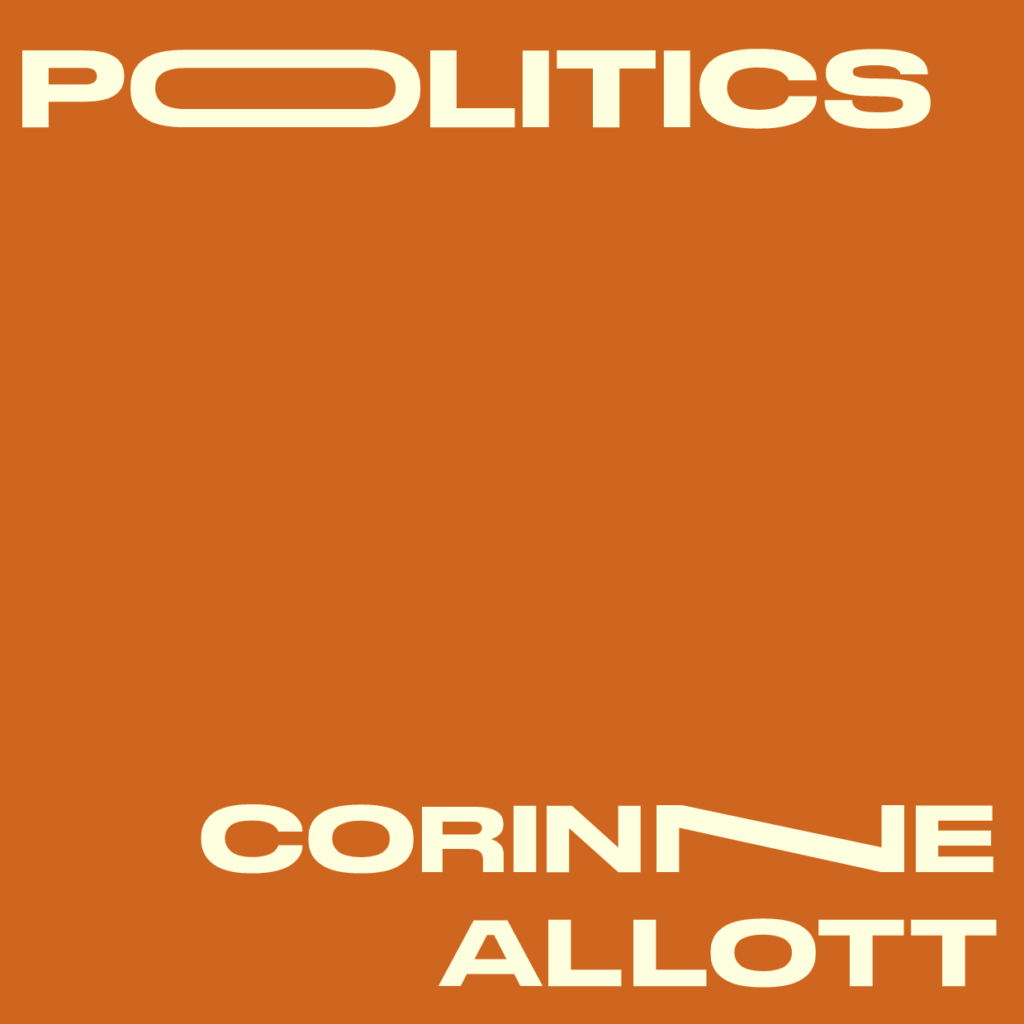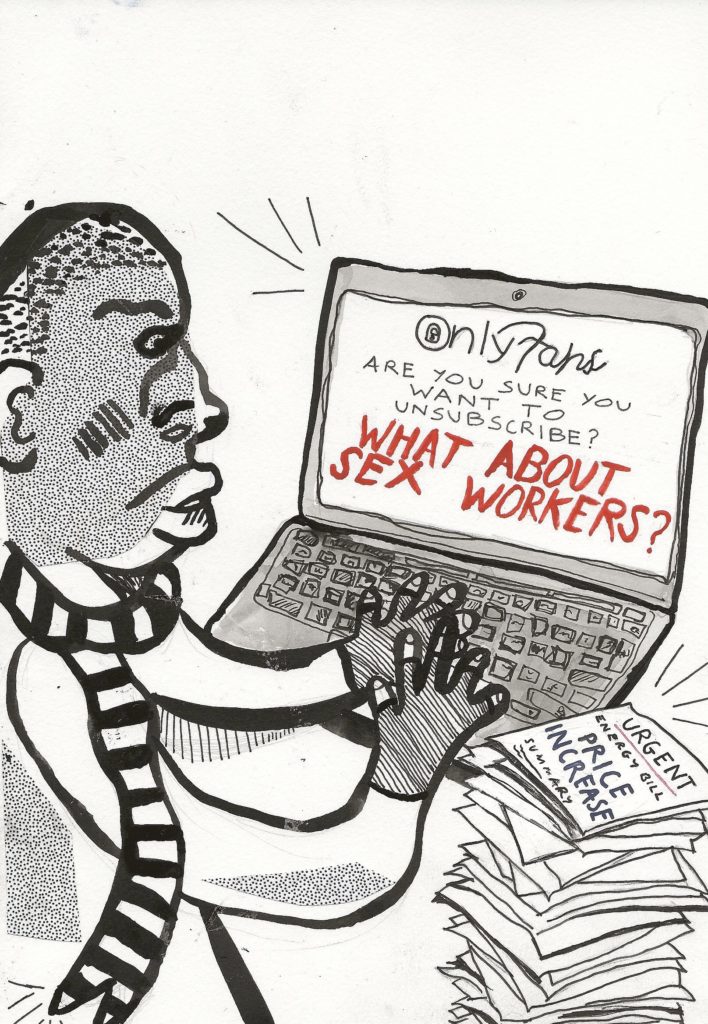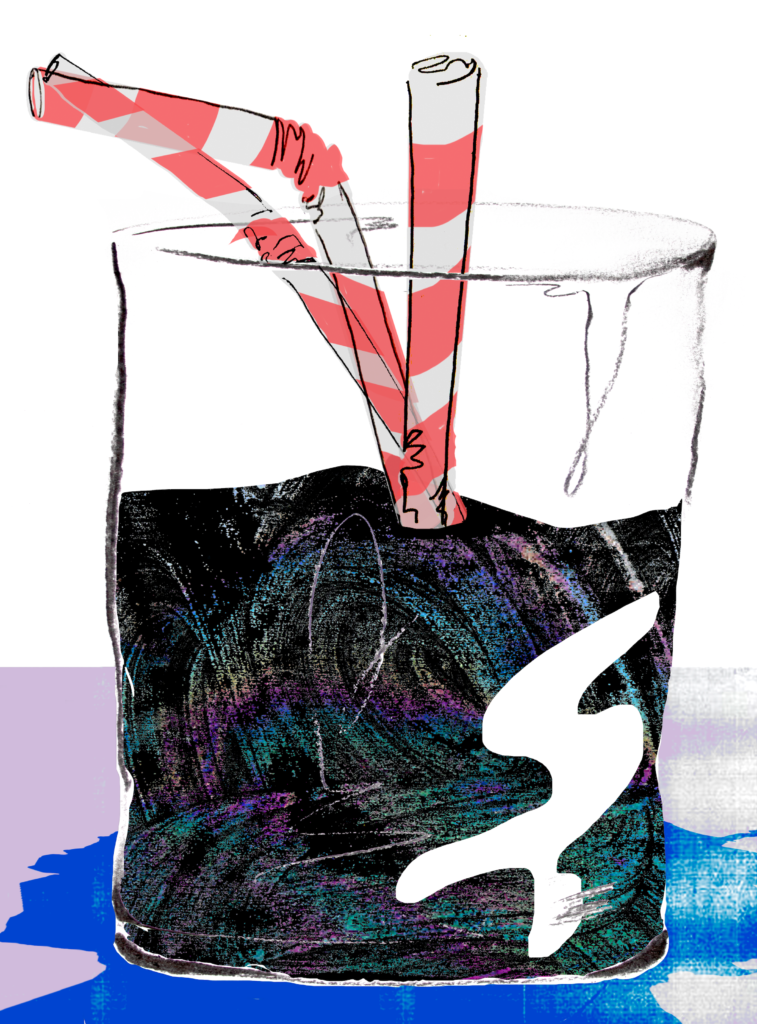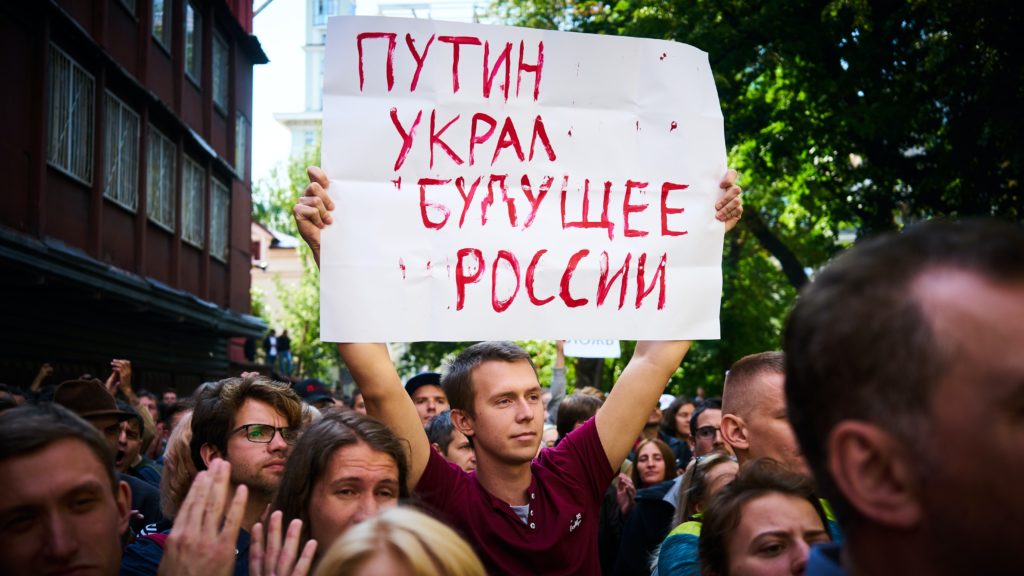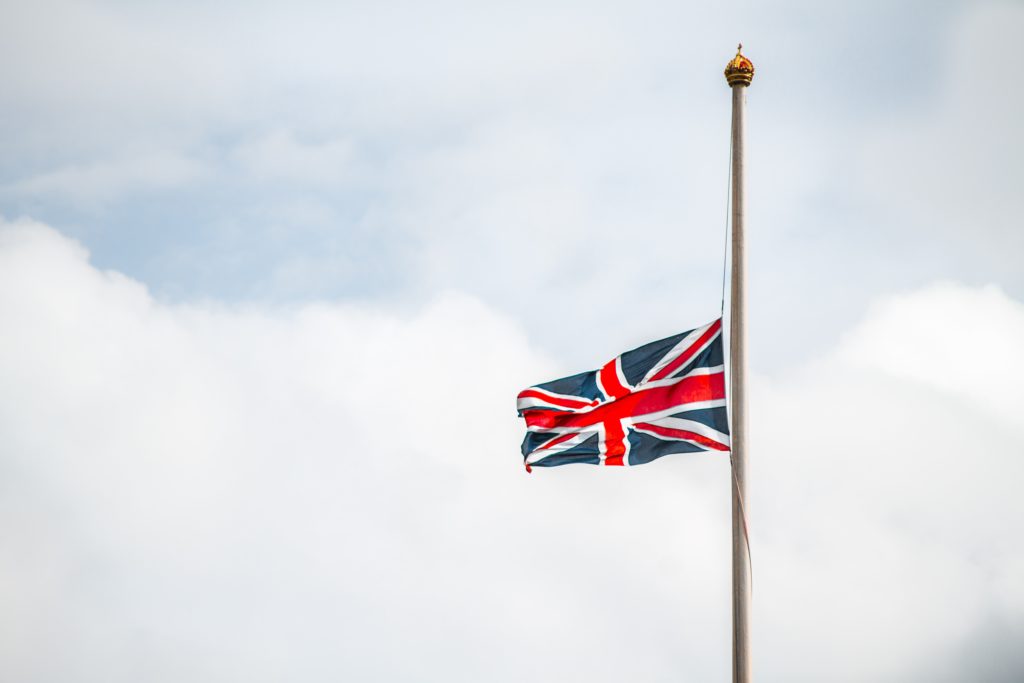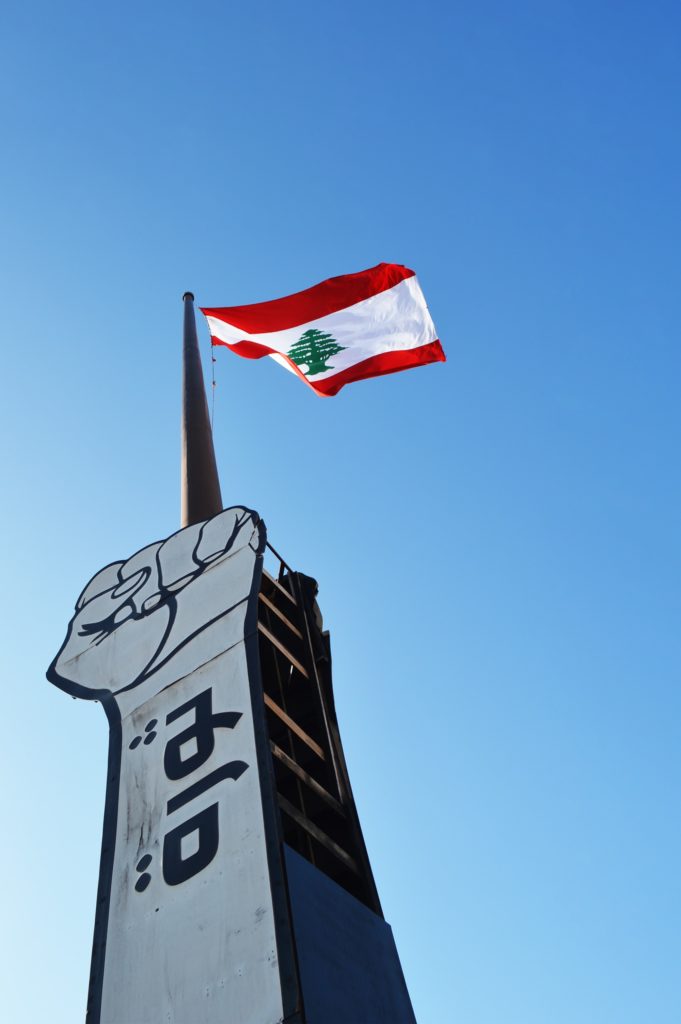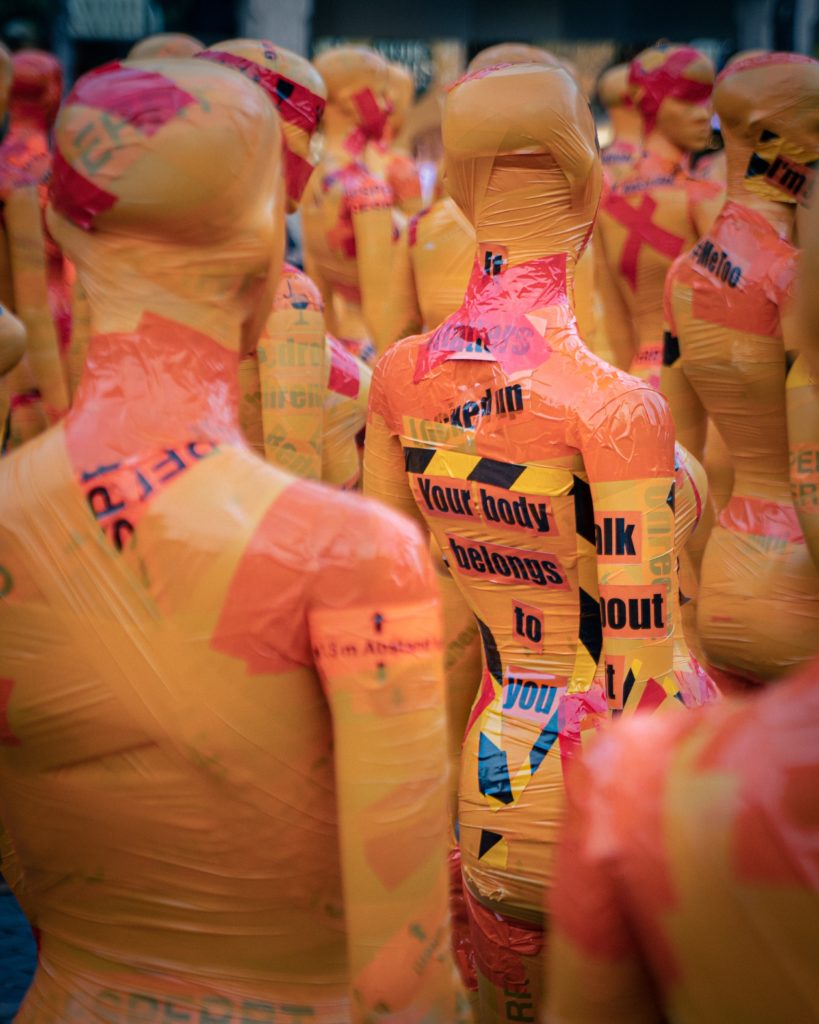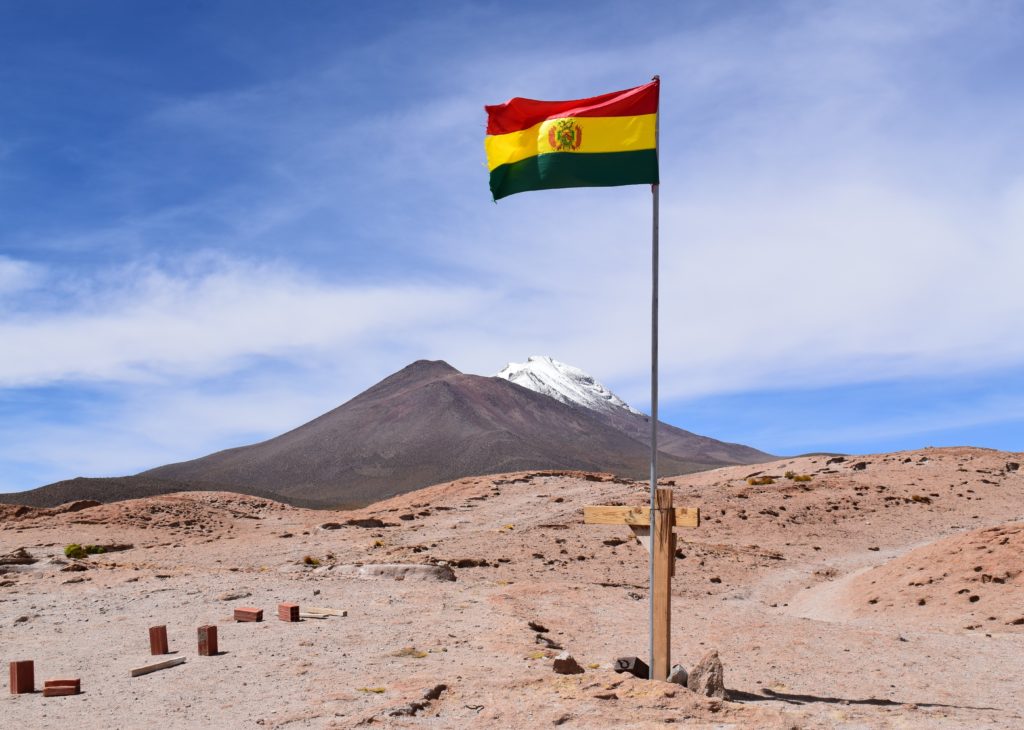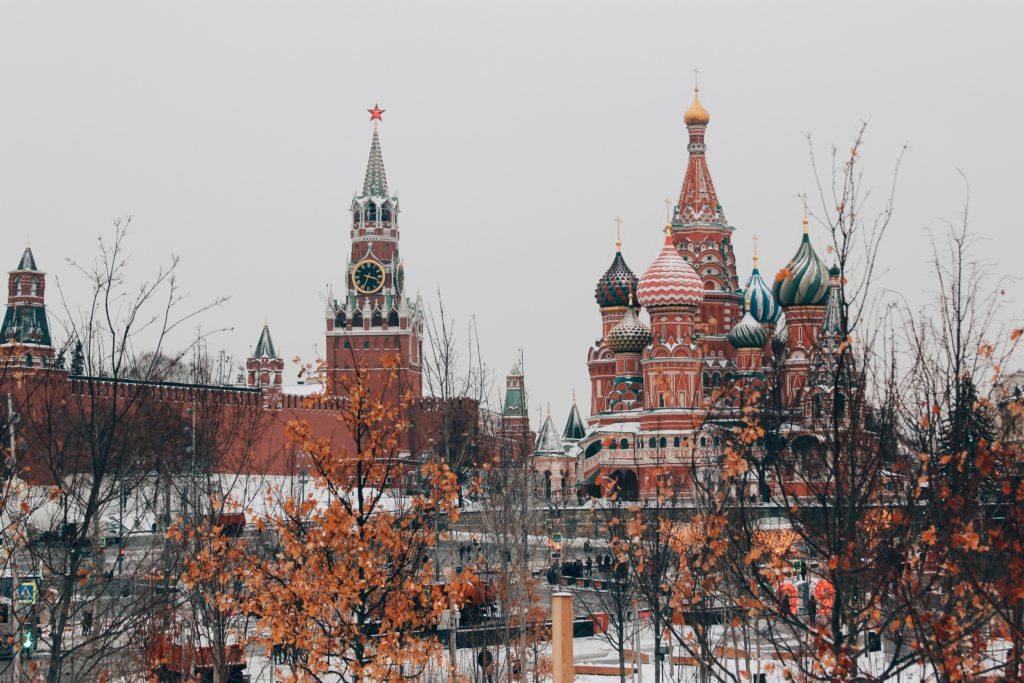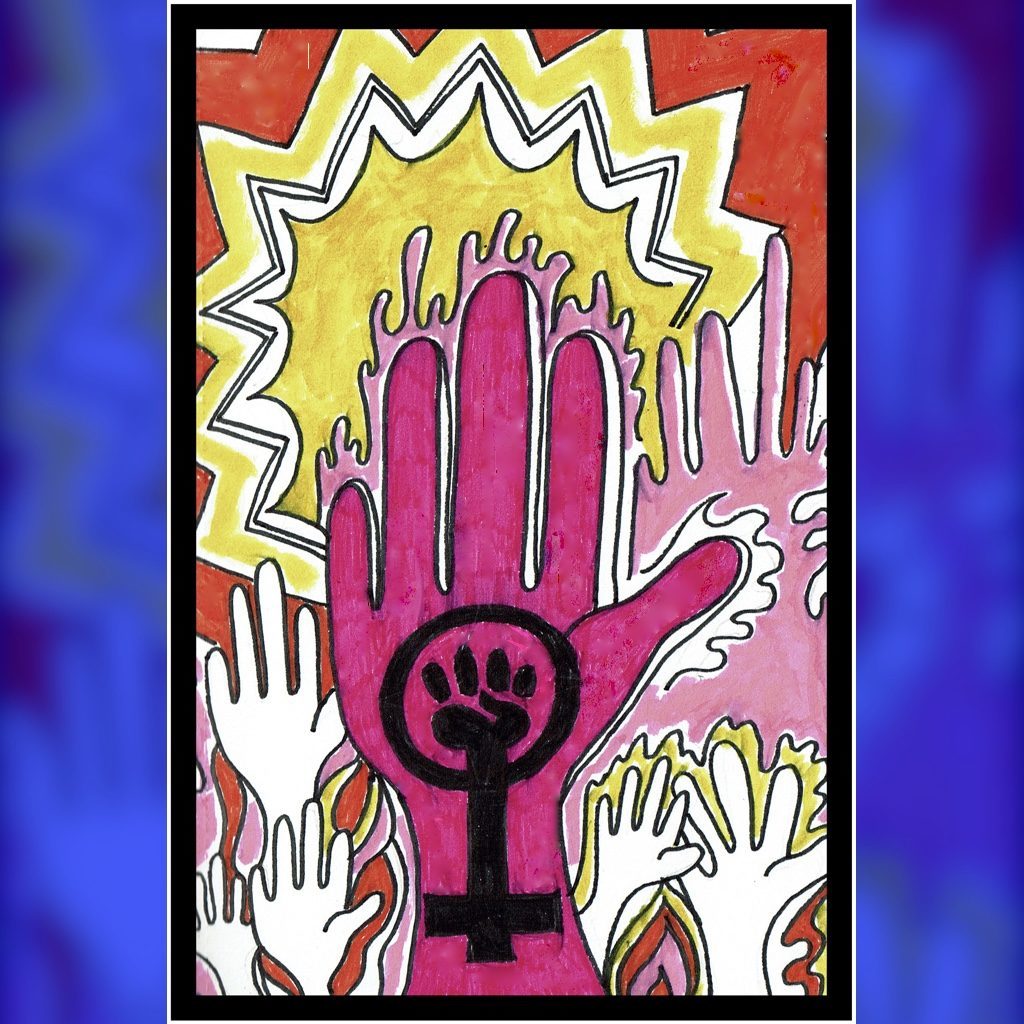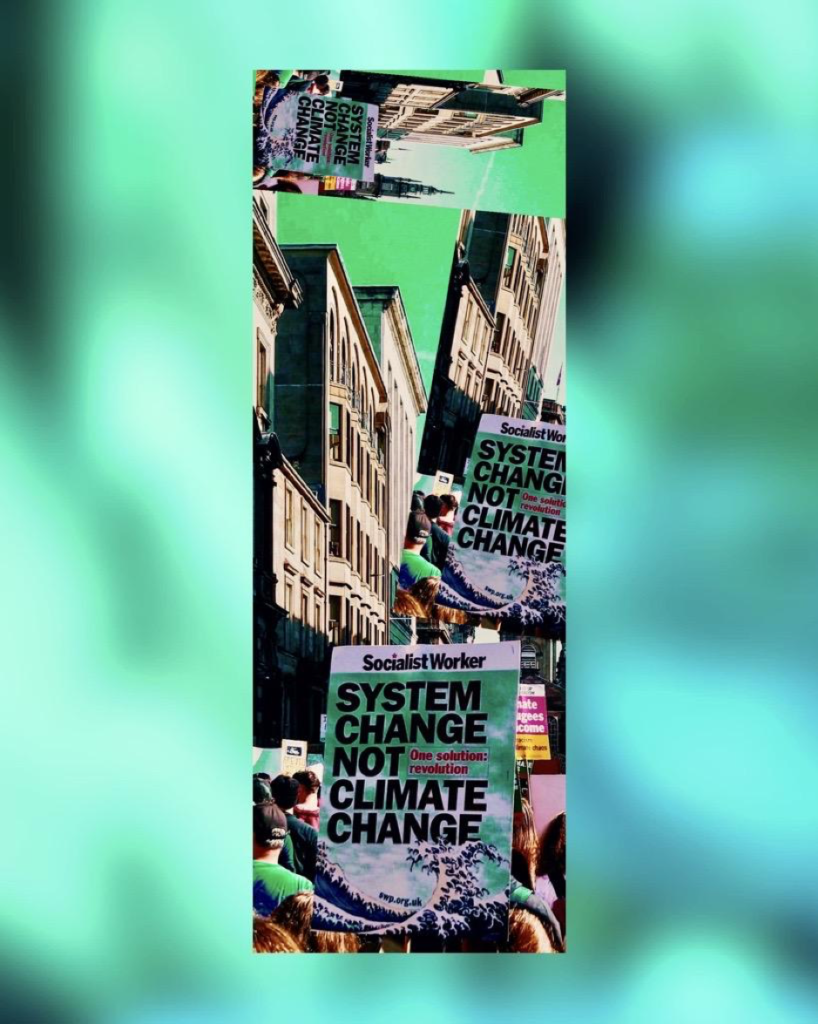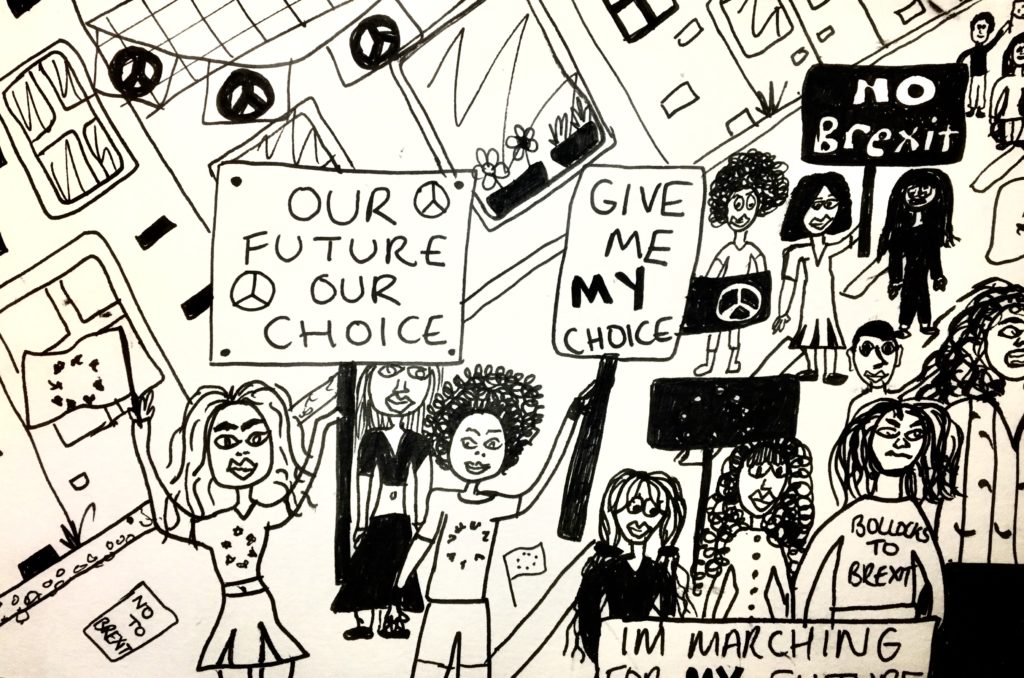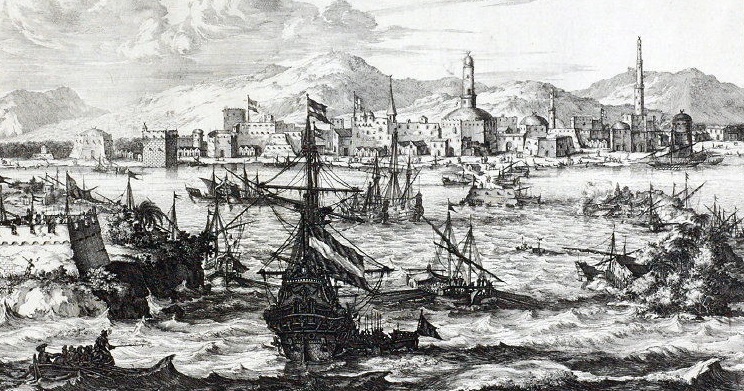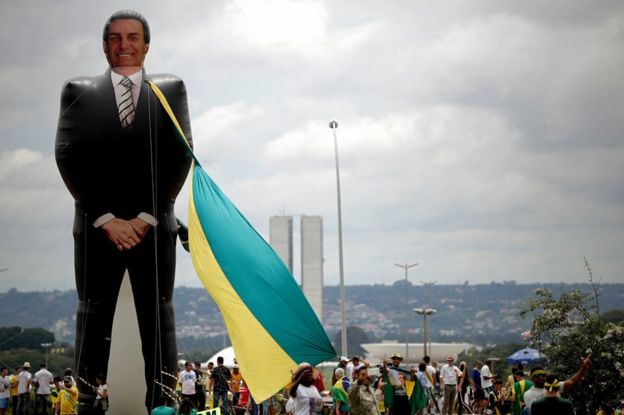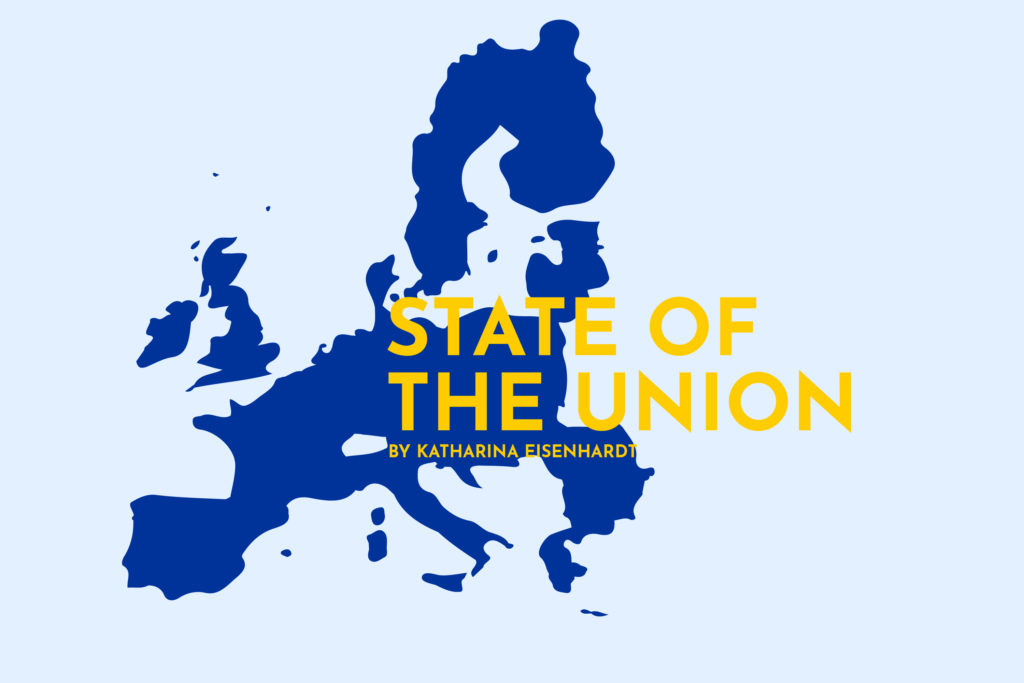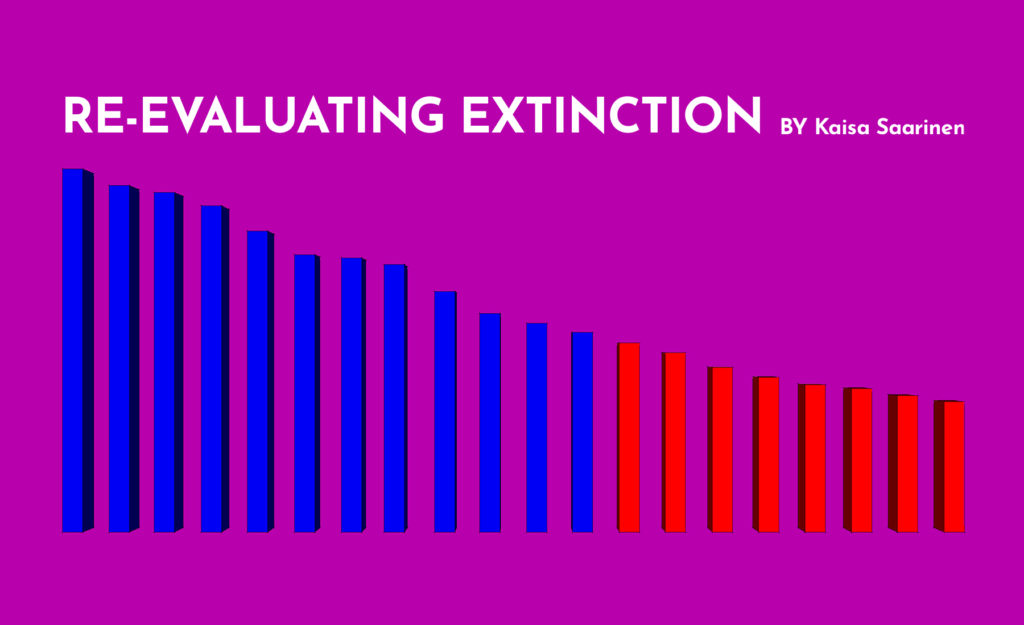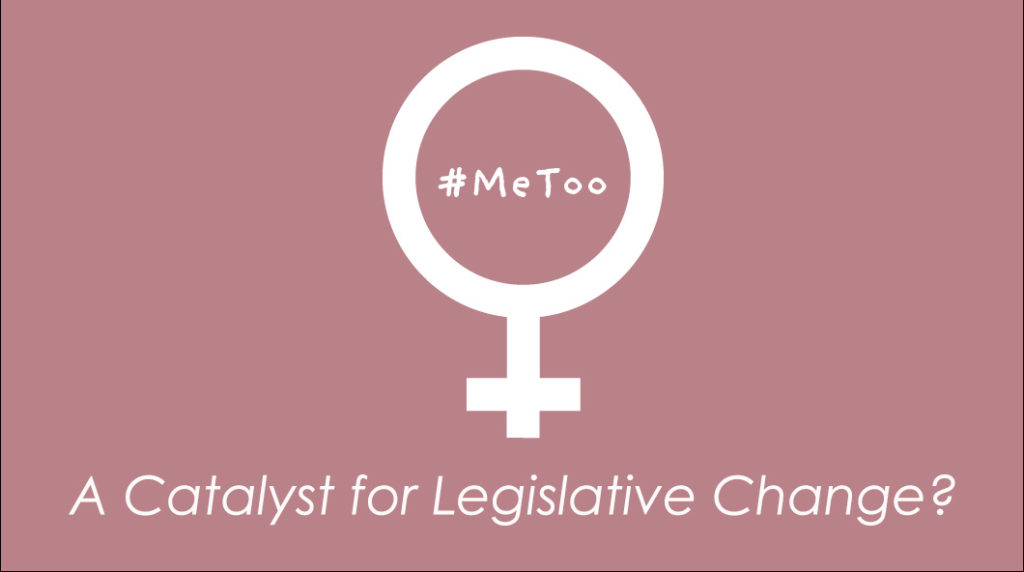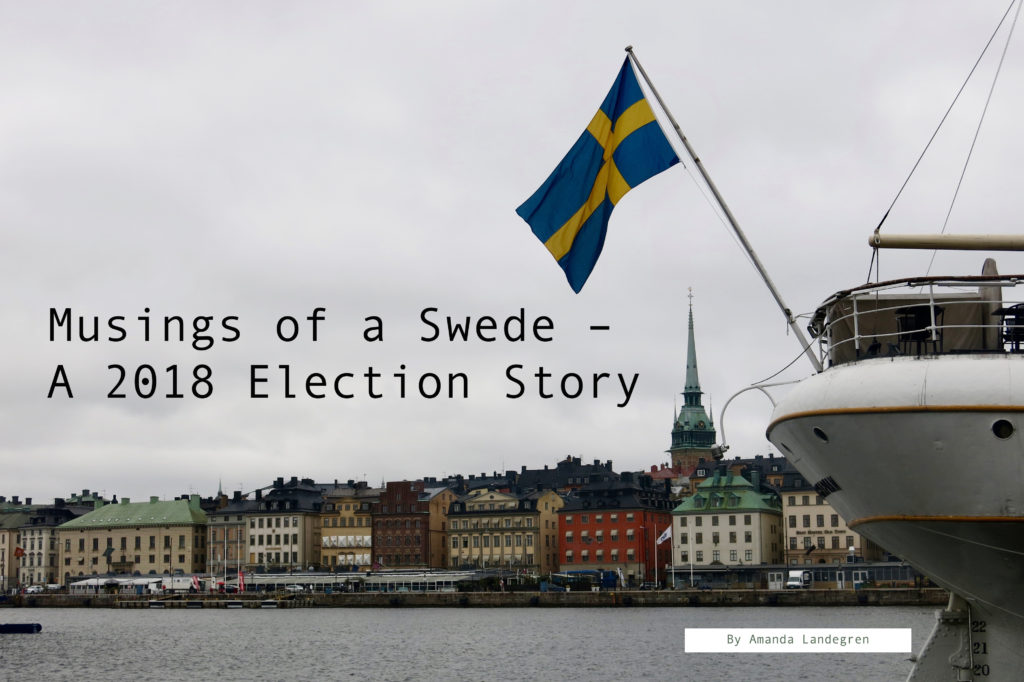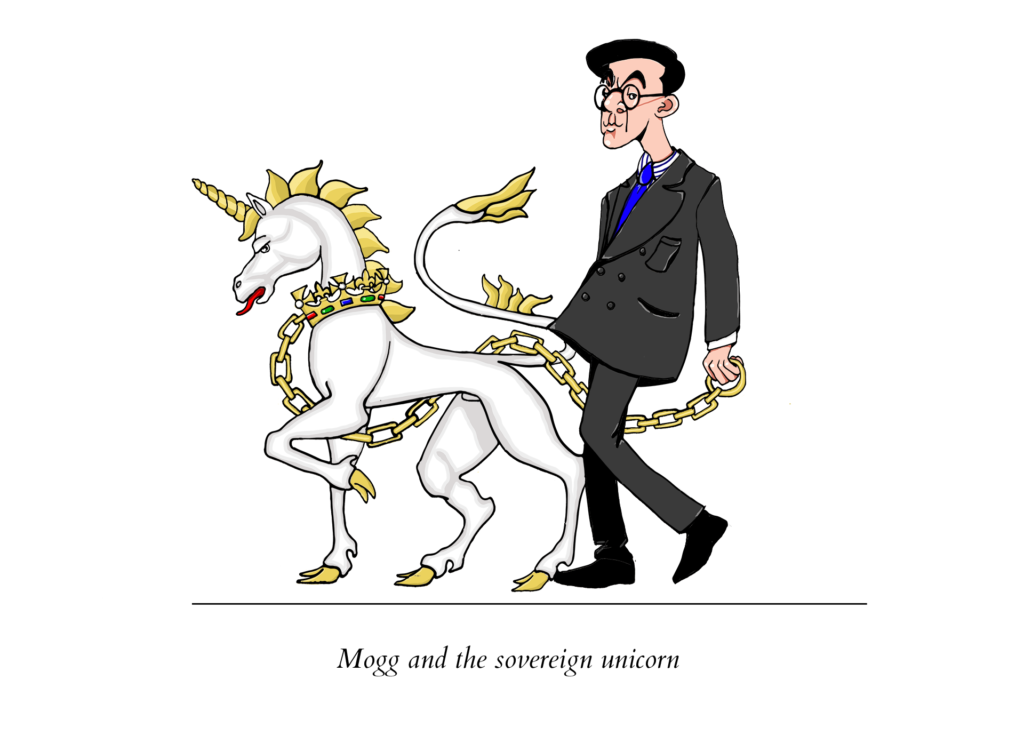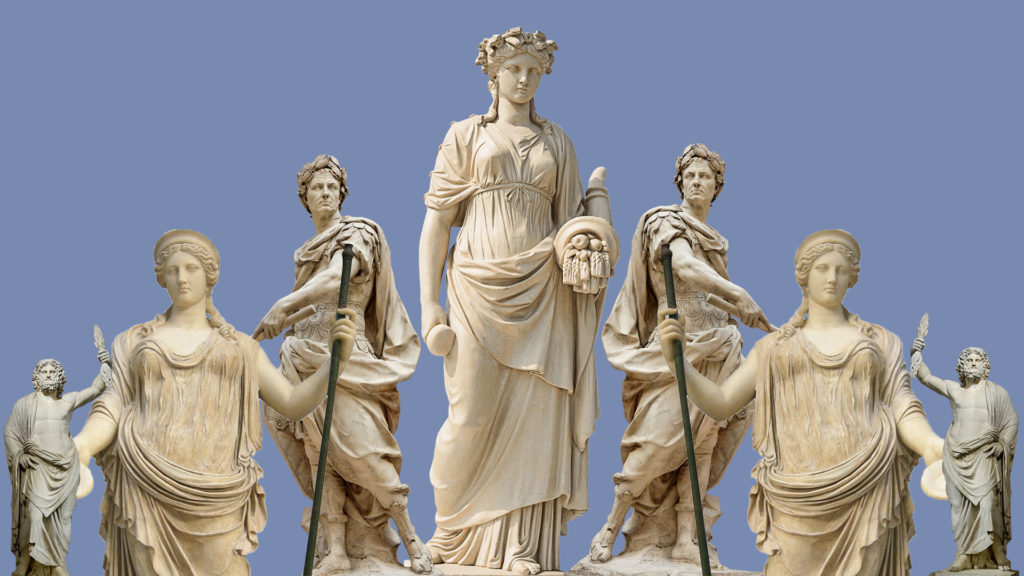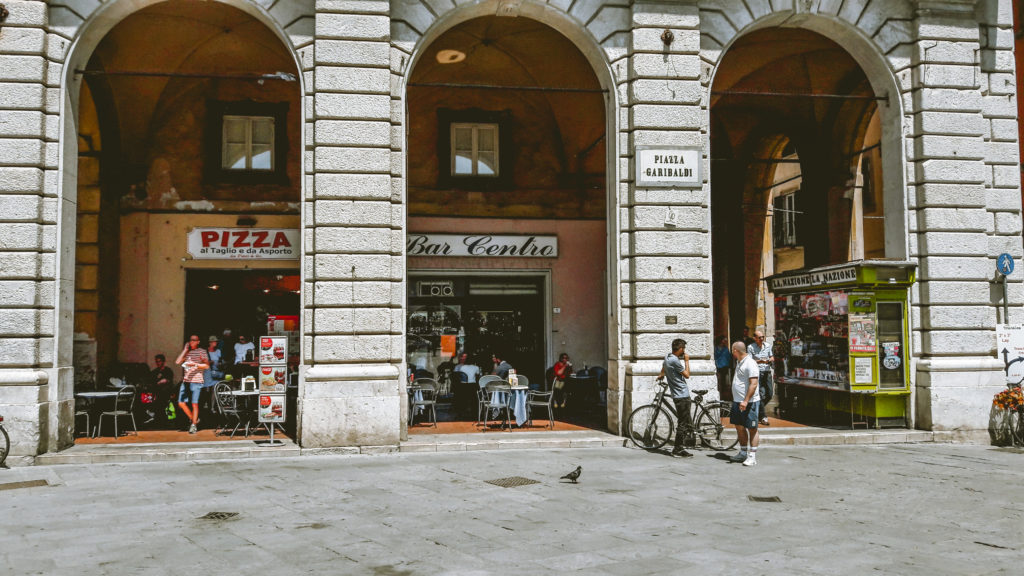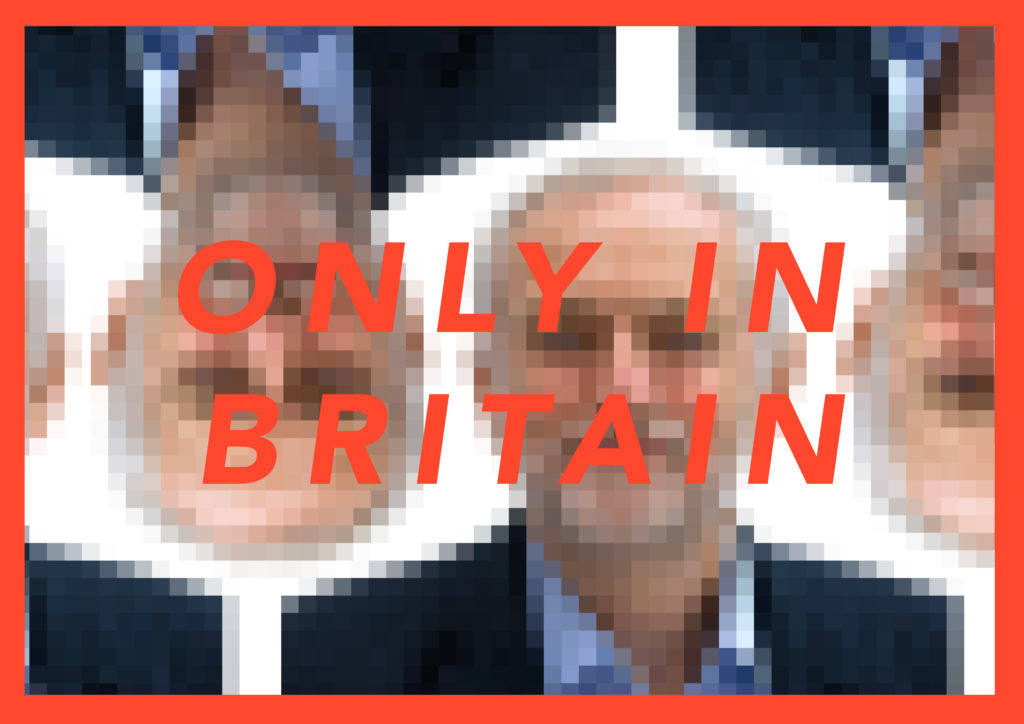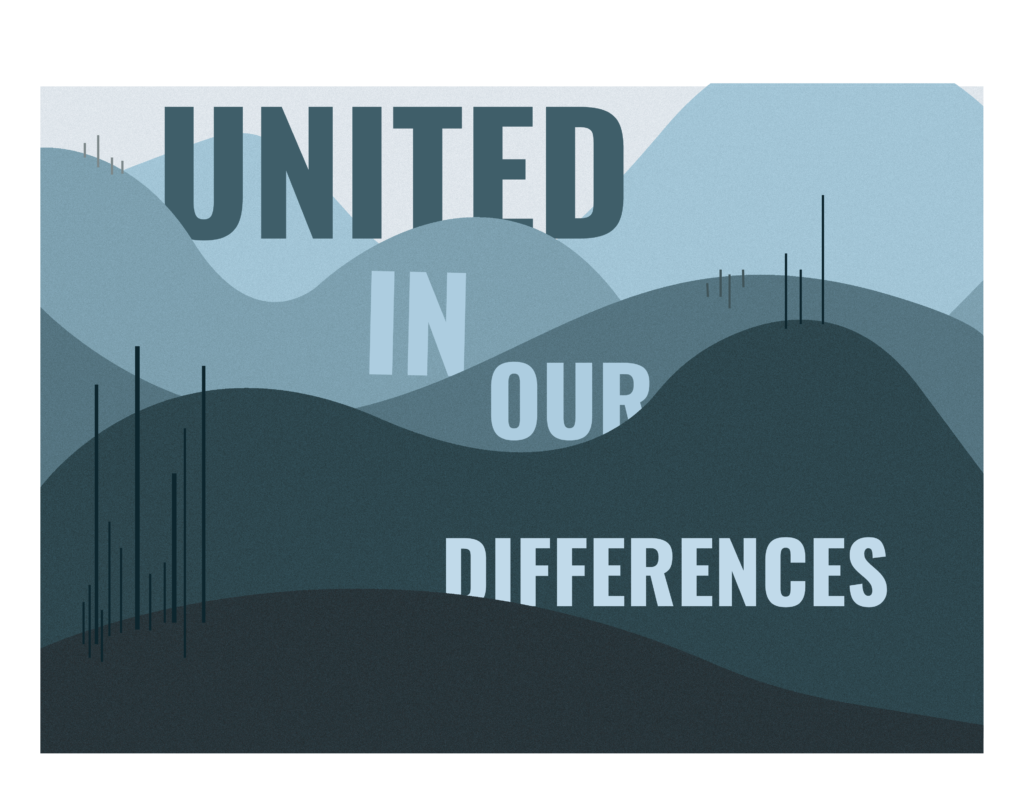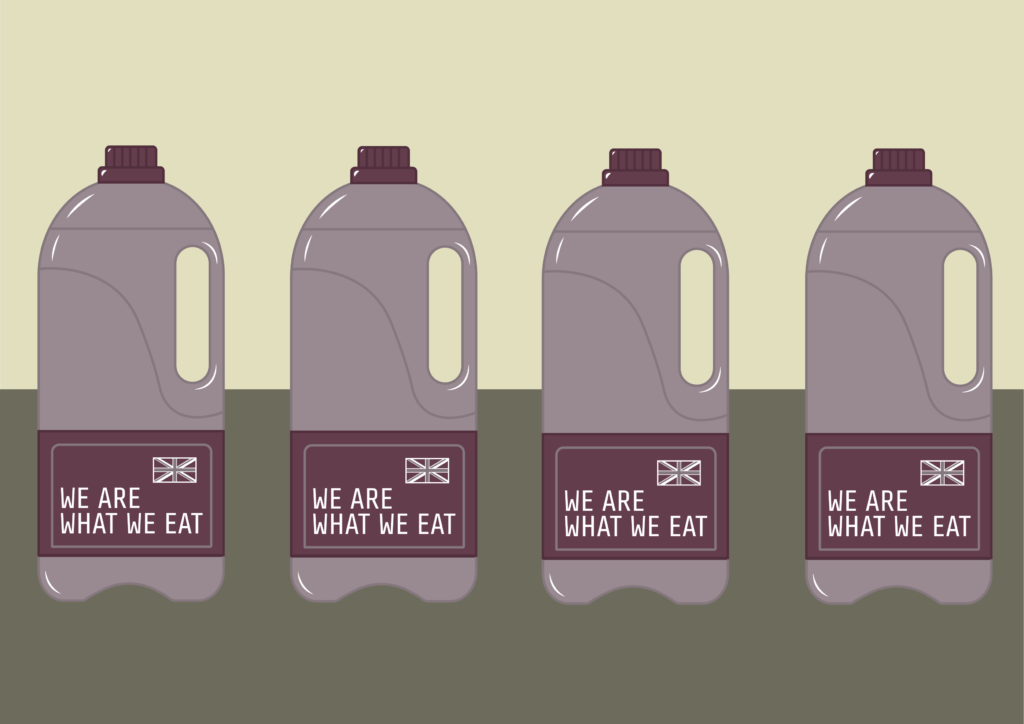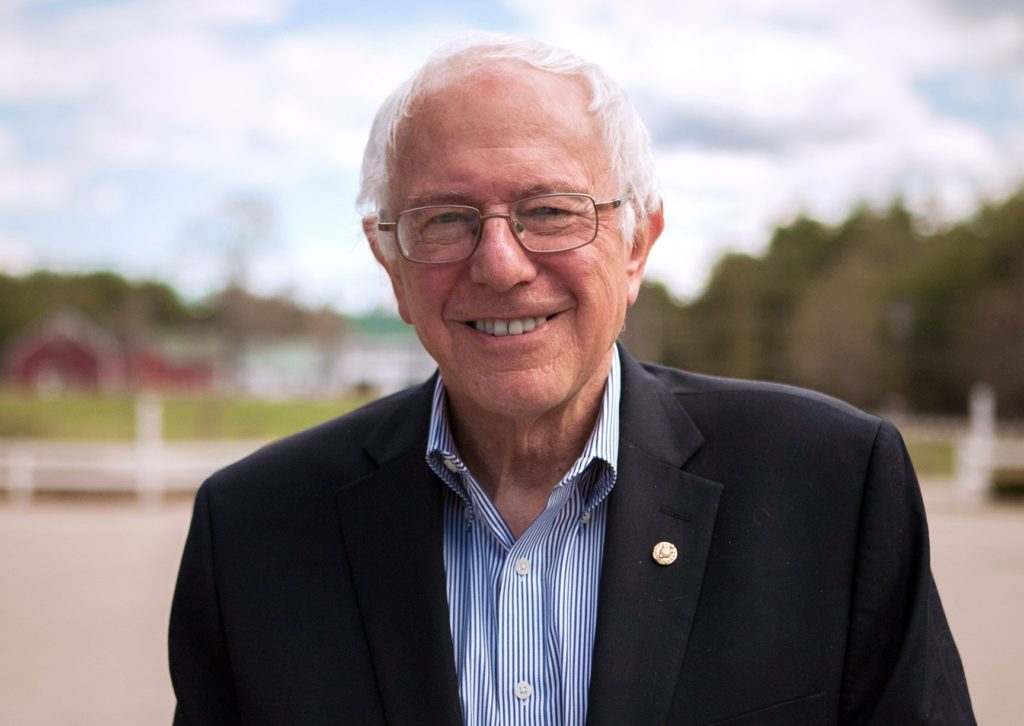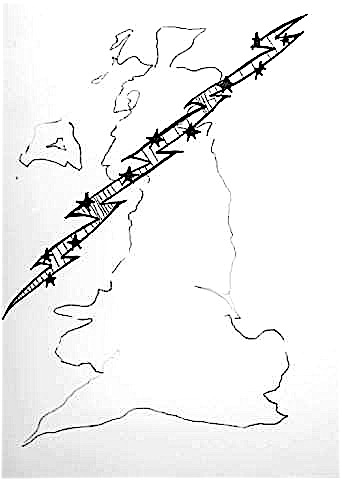State of the Union
[Written by Katharina Eisenhardt]
[Image by Julia Rosner]
GUM relaunches its Brexit series with Katharina Eisenhardt’s ‘State of the Union’. With a focus on broader EU issues, it will seek to highlight the changing dynamics to scientific funding, comparing coverage of EU priorities in the media, and exploring the impact on personal identity. (more…)
Re-evaluating Extinction – Why Declining Birth Rates Cause Alarm
[Written by Kaisa Saarinen]
[Image and animation by Rafe Uddin]
The global birth rate has decreased starkly over the past few decades. In the early 1950s, there were 36.8 births per 1000 people; today the figure stands at 18.5, and is expected to continue falling. The spatial distribution of these births is also not equal; children are significantly more likely to be born in Sub-Saharan Africa than in East Asia. These statistics have yielded a variety of regional discourses. In countries with declining birth rates, the numbers are often discussed in concerned and alarmist tones. In a world where the ‘population explosion’ is recognised as one of the most difficult problems of our time, contributing to the global environmental crisis, there is a need to critically examine why the fact that fewer children are born is presented as a serious problem. (more…)
Hostile Environment Policy – British Till When?
[Written by Hester Lee]
[Image Credit: Creative Commons//Flickr.com//Chris Fleming]
Birthright citizenship, while now almost exclusively applicable to countries in the Americas, still holds considerable political issue in the UK as it sheds light on the current dispute of certain migrant’s claims to citizenship and the vilification of migrants in the media, regardless of their absolute legal right to be in the country. (more…)
#MeToo – Zero-hours contracts, sexual assault and NDAs – Uber’s Public Image Priorities
[Written by Toju Adelaja]
[Image Credit: freestocks.org//flickr.com]
[Trigger Warning: This article includes discussion of sexual assault.]
When Uber driver Rebecca Graham was sexually assaulted by two passengers and reported this to Uber; she was offered no counselling, reimbursement for lost wages, or anything remotely helpful. They also refused to disclose the identity of the passenger without a subpoena and that she couldn’t get a warrant since there was no evidence beyond her testimony. (more…)
#MeToo – A Catalyst for Legislative Change?
[Written by Pauliina Ketonen]
[Image by Kate Zápražná]
[Trigger Warning: this article includes discussion of sexual assault.]
Scandals come and go, but in the last year, their number and media permanence has been dizzying. With reports spanning from Hollywood to the UN we are forced to acknowledge how deeply bullying, sexual harassment, and abuse are embedded in our society.
Putting the Cult in Culture
[Written by Reiss McInally and Andrew Trower]
[Image Credit: Flickr.com//Gage Skidmore]
Jordan Peterson @ Edinburgh Playhouse | 28th Oct ‘18
It’s not just the price of the ticket or the cost of getting to Edinburgh. I like to think that my time is worth something, too. Peterson obviously disagrees.
(more…)
Between Algeria and France: Pied Noirs and the Maghrebian Subject
[Written by Nora Aubry]
[Image Credit: Pixnio.com//USFWS]
For nearly a decade, the refugee and migration crisis has seen thousands risk the perilous journey across the Mediterranean Sea from North Africa into Europe. This has increased significantly as civil war and environmental factors force individuals to leave their home countries. Most poignantly, it remains an issue that does not seem near conclusion. Isabelle Adjani – a French actress who defends the migrants’ cause – stated in a recent interview with ELLE magazine that the “nature of roots is to be able to adapt, acclimate and grow anywhere”, implying that people who are uprooted from their homeland should belong wherever they wish. Such a remark makes me question our notion of home, its meaning and leads to a reflection upon our own roots. Is our identity defined by where we come from and our family’s past?
Musings of a Swede: A 2018 Election story
[Written by Amanda Landegren]
[Image By Aike Jansen]
I never used to be very interested in politics. I never engaged with what I considered boring and aged discussions between people, with the elusiveness of straight and honest answers ultimately becoming exhausting. It wasn’t until I had to vote earlier this year that these questions suddenly burst into importance and I actively took a step towards being able to make an informed decision. I have always had values and opinions, but never considered where these really caused me to land politically. Until this year. What surprised me watching debates and following politicians on twitter, was firstly the lack of basic respect; also the dishearteningly alienating and polarising political climate. However, the question that I find immensely interesting to ask is whether this polarisation is a true representation of the reality, or if it is a simplified image offered to us by propaganda and by the media? (more…)
Against a Politics of the Dead
[Written by Dovydas Kuliešas]
[Image by Kate Zápražná]
So where to start? “Our Town” is Labour’s newest Party-Political Broadcast. It’s already made waves across Twitter, with a message “laser-targeted at small towns across the country”. Designed to be the message the “left behind” have been waiting for, Labour are seemingly seeking to translate this into loyal supporters of other parties flocking to them out of sheer emotional infatuation. Looking at the current ongoing trends in UK politics today, this gamble seems likely to pay off; but something about it feels wrong to me.
TOMORROW: Hypothetical Politics and the World of Tomorrow
[Written by Rafe Uddin – Politics Editor]
[Illustration by Julia Rosner]
The political discourse is one which is abound with hypothetical notions of what the world of tomorrow will look like. From daunting notions of rapture, as societies descend into conflict, to a belief that a political decision could stave off this outcome. From the impeachment of Trump to the reversal of Brexit – the leading assumption suggests that these will help society overcome an illiberal agenda. However, hypothetical arguments do little to outline what tomorrow will actually look like. I would go as far as to argue that they only amplify any echo chamber that you might be living in (Twitter now curating the voices in your head). However, I am not advocating playing host to all perspectives. Instead I am advocating – being pragmatic about the future – not altogether cynical.
The Natural Capitalist
[Written By: John Hill]
The nineteenth-century American philosopher Ralph Emerson wrote that ‘the only right is what is after my constitution, the only wrong what is against it’. It is natural to focus on the needs or desires of ourselves above anybody else’s concerns as self-interest drives us all and impels us to fulfil our own individual wills. Freud himself was interested in the study of our innermost drive and concluded we have two primitive instincts: Eros and Thantos, our will to live and our death drive, the pursuance of personal fulfilment and preservation.
Italian electoral campaign 2018: Grounds for a (tragi)comedy
[Written By: Valeria Levi]
[Photographer: Adriana Iuliano]
I generally keep an eye on Italian politics and follow the latest news from Glasgow but, of course, when last week I spent a couple of days in Italy, the chance to speak to people directly affected by the electoral campaign there has made me reflect upon it more profoundly.
For the Many, Not the Jew
[Written By: Andrew Trower]
When Americans use the expression ‘only in America’, they mean to convey the impression that something wonderful or unexpected has occurred; here we say ‘only in Britain’ when something risible or stupid or predictable has taken place. Oscar Wilde said that we are separated by a common language but really what distinguishes us from U.S. is our national pessimism: we are more cynical, more mordant, more derisive, and none of these qualities is really worth having—except in politics.
REVIEW: THE RECTOR ROUND TABLE, 21ST NOVEMBER 2017
[Written by Jasmine Urquhart]
The evening of the 21st of November saw the final instalment of the Rector Round Table discussions in the QMU. Aamer Anwar started the session by outlining the primary issues occurring on campus.
IDENTITY // United in Our Differences: Reconstructing the Stereotype of a Soldier
[Written By: Megan Willis]
[Illustration: Julia Rosner]
Take a moment to picture a soldier in the British Army. What do you see?
It’s more than likely that what you see is a stereotype, a set identity of what and who a soldier is, an identity that has been produced and reinforced through our culture and history.
IDENTITY // We Are What We Eat: An Article on Post-Brexit Food Standards
[Written By: Elspeth Macintosh]
[Illustration: Julia Rosner]
As many of us know, the European Union currently has lots of influence on the characteristics of the food that we import and export. But what we are less commonly aware of is that the upcoming Brexit will change British policy concerning the food products we consume in our daily lives. This article aims to summarise an issue that too many of us lack awareness of and capture a snapshot of Britain’s attitude towards food standards and trade in 2018.
An Open Letter from the Committee of the University’s new Pro-Life society, Glasgow Students for Life
Since their establishment late last year, there has been an onslaught of outrage and online abuse directed at the university’s new pro-life society (then known as GUPUPS). Most of these angry comments seemed to only consist of hot air, of exaggeration and assumption. There is nothing more frustrating than those, whether conservative or liberal, that are politically charged but remain stubbornly, and unabashedly, ignorant. So, in the spirit of free speech, and with an impatience for informed debate, I contacted the society to see if they would be willing to shed any more light about who they are: what do they stand for? what are they here to say?
This was their reply.
In Congress with Predators: How powerful institutions in the US are responding to the recent onslaught of sexual allegations
[Written by Jack Pedersen]
Over the past months, the Western world has seen allegations of sexual assault surface at an alarming rate. But will our newfound awareness of this systemic problem prove too behindhand when seeking justice against some of America’s most powerful figures?
Pakistan: the 70th anniversary of a failed construct
[Written By: Gustav Jönsson]
Call it vivisection, amputation or partition; last year it is seven decades since the Subcontinent was carved up and Independence was achieved.
The Partition was disastrous not just because it dismembered India, but also because it created Pakistan. Just a few years before 1947, Pakistan was simply an academic idea. The acronym “Pakistan” was termed by a scholar at Cambridge in the 1930s. It stands for Punjab, Afghania, Kashmir, Indus, Sind and Baluchistan. In Urdu it means “land of the pure.” Thus, Pakistan is not just a territorial claim but also a confessional statement; one that its founder, Muhammed Ali Jinnah, thought would be welcomed by the areas that made up his new country. He was wrong. Today, Kashmir is largely part of India, Baluchistan fights a secessionist struggle and much of the Punjab lies in India.
Hillary Clinton’s What Happened – A Review
[Written By: Corah Gritton]
The majority of us can agree that, no matter our stance on Hillary Rodham Clinton, we would have preferred her to who currently resides in the White House.
H. L. Mencken’s Fight for the ‘Great Truth’
By Gustav Jönsson
Henry Louis Mencken once wrote, “The trouble with fighting for human freedom is that one spends most of one’s time defending scoundrels. For it is against scoundrels that oppressive laws are first aimed, and oppression must be stopped at the beginning if it is to be stopped at all.”
How right he was. It is hard to find a pithier summation of the difficulty defending free speech. How easy it would be to stand up for freedom if it only meant supporting people of Salman Rushdie’s ilk. Often, you will find yourself supporting unlikable scoundrels, but you must, nevertheless, fight against the abridgement of their civil liberties. For Mencken, this led him to defend Henry Ford’s right to print antisemitic nonsense.
The Thing About Idealism
Written By: Claire Gould
Opening my mouth to speak immediately betrays the fact that I am American. What follows are questions from strangers about our politics. Did I vote for Trump? No? Then was I “Feeling the Bern”?
Dear Aung San Suu Kyi
Written By: Margot Hutton
Dear Aung San Suu Kyi,
I always have admired you for your engagement in the effort to bring peace and democracy to your country. I believe this fight needed your bravery, patience, and devotion to make Myanmar a better place for everyone living there.
Those decades of fight, of sacrifice, of house arrest, as you dared to promote a better world and speak out against a dictatorship, were not for nothing. It was a victory when you took office as foreign minister and state counsellor last year.
Election Results Confront Germans With Many Firsts
Written By: Luisa Haa
Photograph: Rachel Shnapp
I am not the only German who was upset by the results of this year’s election, but no one was taken by surprise.
What has happened to UK Party Politics?
The recent council and mayoral elections held across the UK on the 4th May have made one thing very clear; party politics is in a complete muddle. Most parties suffered losses at the ballot box, no one more so than Labour which lost 320 seats across the country. Indeed, Professor John Curtice concluded that the local elections demonstrated a 7% swing from Labour to the Conservatives, who were the only triumphant party of the night, gaining a crushing 558 seats across the country.
An Interview With GU Green Party
In an increasingly turbulent political climate – Trump, Brexit, and rising right-wing populism across Europe – that seems to be turning away from caring for our fellow human beings, it can be hard to know where to go next. How best should we respond to these upheavals? How do we voice our dissatisfaction when we don’t like where things are going? And what can we do to protect the most vulnerable members of our society? we sat down with Chandler and Frida, members of the green party, to talk about student activism, the future of the left, a more empathetic kind of politics.
Which demographic in society do you think is shown the least amount of empathy?
Frida – I definitely think migrants and asylum seekers, a lot of people tend to target them because it’s easy to target people who are unfamiliar to you.
The working class is a target group as well, especially with the Conservative government. It’s easy to target them as well. They cut down on benefits and taxes, and then demonise that group so it’s easier to justify those things.
Why is Climate change such a politicised issue in the US?
Year after year records have been broken for global average temperatures: without a doubt, climate change is well underway. The scientific consensus is clear – 97% of climate scientists agree that contemporary global warming is caused by humans. If only this clarity could be said about the politics of climate change.
IndyRef 2: Might We Really Be Better Together?
Déjà vu, right? Just two years after Scotland voted to remain in the UK, here we sit with the prospect of another referendum. Recently the SNP released a draft bill showing the possibility for a second referendum for Scottish Independence – because this is exactly what we need, just a little bit more madness in a country seeming to implode each day. Of course, though, this was to be expected. The SNP made their point very clear throughout the campaign for the EU referendum; that if it did go the way no one expected, Scotland would revert to its independence mayhem. (more…)
High Court throws spanner in the works of May’s ‘Hard Brexit’
So much for Brexit means Brexit. The high court has made its decision, and said that Parliament alone have the power to trigger Brexit. This decision came as a shock, as Theresa May had previously insisted that government would decide when to trigger the process. The defining reason given by the Lord Chief Justice, Lord Thomas of Cwmgiedd, was the fundamental factor of the UK constitution that the parliament is sovereign and unable to be bound. Despite this, almost immediately an uproar followed. Politicians from both side of the debate have chimed in, with Nigel Farage being one of the first to voice his dismay over the decision. Others, including the leaders for both the Labour and Liberal Democrat parties, have reacted more positively; both leaders cited that now was the time for negotiations to be made, and that transparency was required with all matters affecting Brexit.
The Dark Side of Churchill: On imperialism and the new fiver
The brand new polymer five-pound note has now entered circulation, claiming to be safer, cleaner and more durable than its predecessor. While its benefits have been proven to be measurably true, questions have arisen concerning the appointment of the note’s new figurehead- the face of former British Prime Minister, Sir Winston Churchill. According to the Bank of England, their choice to commemorate Churchill is due in part to his role as an inspirational statesman, orator, leader, and Nobel Prize winner who led Britain to victory in the Second World War. Most of his achievements would undoubtedly cement his title as one of Britain’s greatest individuals; however, there are those who are less enamored by Churchill’s actions. Critics have insisted on laying bare his unsavoury and overlooked opinions on race, justice and imperial atrocities, imploring the nation to reevaluate the values we revere, and to take a more dispassionate view on our British heroes.

